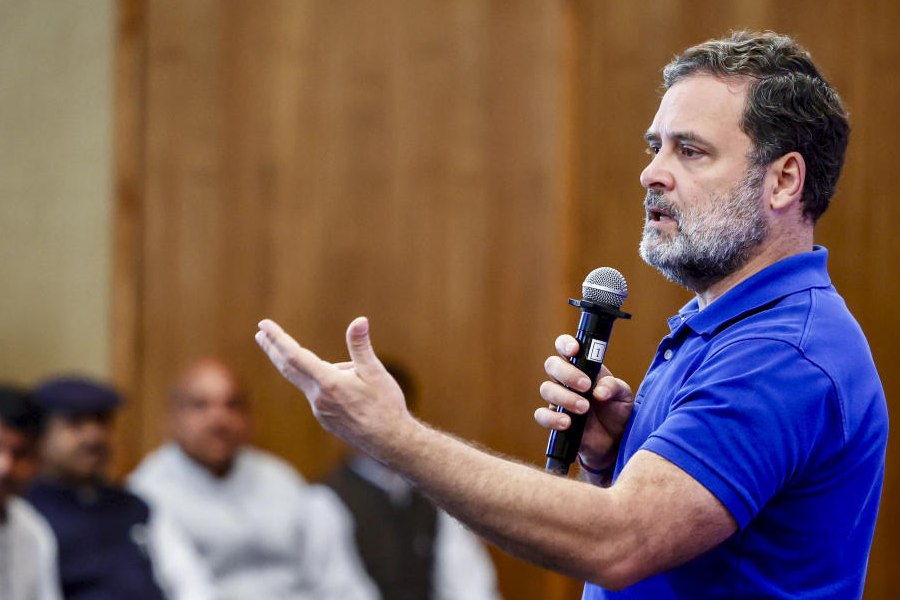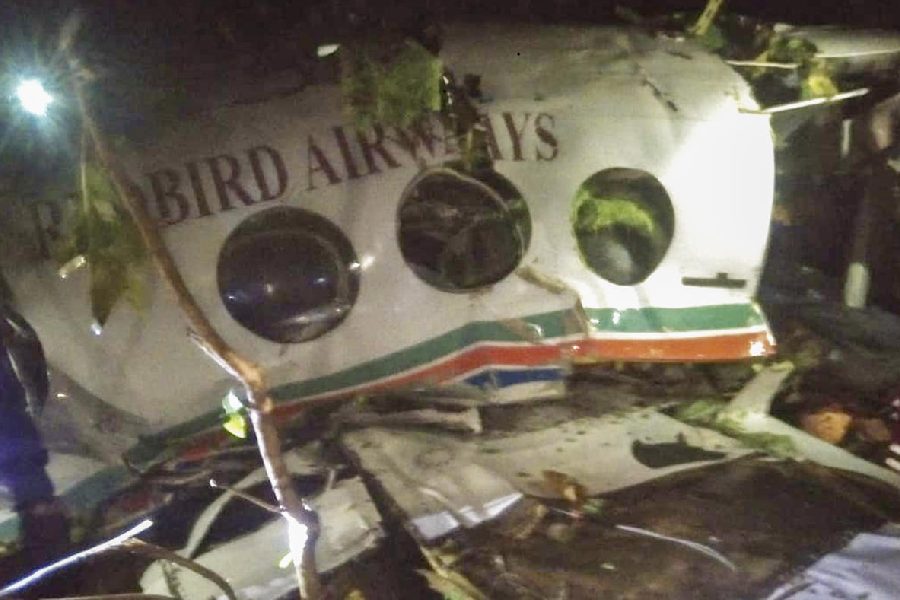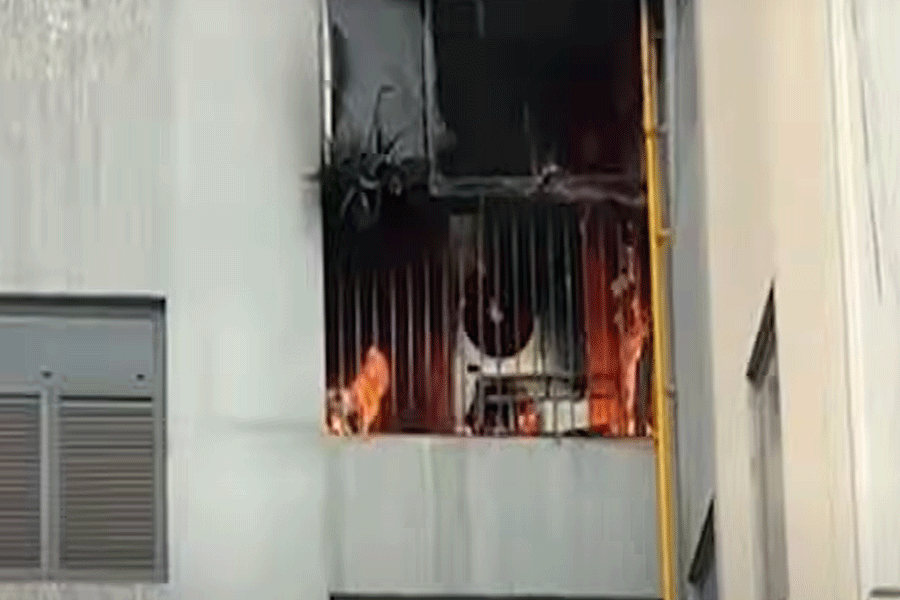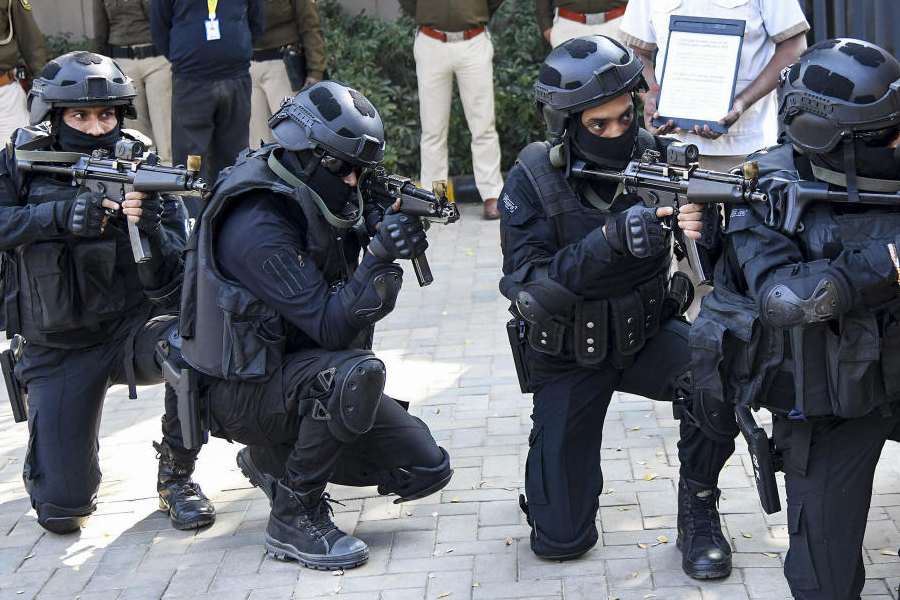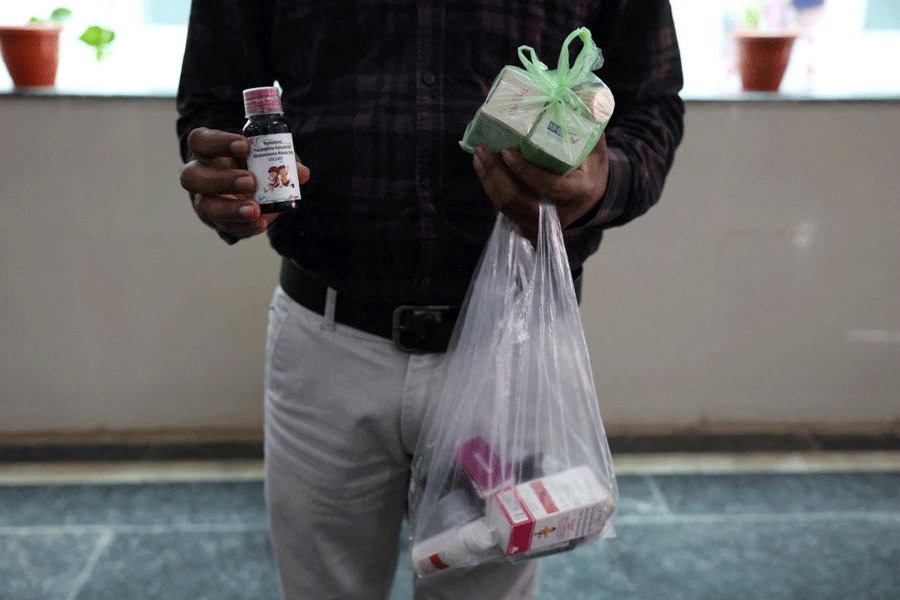Guwahati, Dec. 4: When Kabiranjan spent sleepless nights in the jungles or took shelter in unknown homes to avoid being killed by security personnel or travelled miles for organisational work, he was not alone.
Inside him, giving him company, was a poet.
Eleven years after he finally fell to bullets in 2000, the people of Assam today got a book of poems penned by Kabiranjan Saikia, alias Swadhinata Phukan, the then central publicity secretary of Ulfa.
The book, Moi Kabiranjan Uttapta Hobo Khoja Eta Kabitar Nam, includes a poem he wrote when he was a student of Class IV, pouring out his desire to protect his “ai matri Assam” (mother Assam).
There’s one he penned just two years before his death, about the difficult days he spent as member of Ulfa.
After joining the outfit, Kabiranjan continued to write poems which he published in vernacular newspapers under the pseudonym, Swadhinata Phukan.
Litterateur Homen Borgohain, who released the collection, said Kabiranjan’s poems were the reflection of a heart torn by Hamletian conflict.
He said when Kabiranjan died at age 26, many people in the state were aggrieved not because of the death of an Ulfa rebel but that of a poet.
“Many people felt the pain of losing somebody near and dear in his death. That was because he wrote poems. Humanity and inner conflict found place in his poems,” Borgohain said.
“Everybody thinks that we revolutionaries live without emotion/that is why those who pretend taking advantage of our simplicity/and wish for our painful days/never regret” — Kabiranjan wrote in his poem Kiman Xomoi Teo Nirobe Kotaisil Prarthonagharat (How much time he spent in solitude in the prayer room).
Born at Khutikatia in Nagaon in 1974, Kabiranjan’s childhood was filled with cultural and literary pursuits. He published his first collection of poems, Rakta Aroti, at the age of 12. He was a degree student when the tag of being an “over-ground worker of Ulfa” was slapped on him, after which he absconded for sometime and finally joined the outfit.
For Renu Saikia, Kabiranjan’s mother, he was like “any other boy”, who had a passion for reading and writing.
A sense of guilt for failing to keep Kabiranjan from joining Ulfa haunts her every moment.
“He dreamt of writing and setting up a library. He could not do so. May be it was my fault that I could not keep him at home. I did not know whether he had gone (and joined Ulfa) for good or bad,” she said at the book release at the Guwahati Press Club here this afternoon.
Ganesh Nath, the publisher of the book, said the poems that Kabiranjan wrote — right from Class IV till the end — showed that he was not only a good poet, but also a revolutionary in the true sense.
Two other Ulfa members, Mithinga Daimary and Kaveri Kachari Rajkumari (wife of Ulfa chairman Arabinda Rajkhowa), have been regarded highly as poets.
Daimary wrote poetry under the pseudonym, Megan Kachari, and had three collections.
In 2006, the World Book Fair in Frankfurt released an English translation of some of his poems.
Kabiranjan, too, knew well how to mould his thoughts into verse.
As a school student, his thoughts were assorted and he spoke about the beauty of Bohag, glorified the spirit of Lachit Borphukan and Joymoti and dreamt of becoming a great personality. But age and life streamlined his thoughts, and his poems became the mirror of a person tossed into the harshness of life as a member of an armed secessionist group.
So, as a Class V student Kabiranjan, who was thrilled to see the tender green leaves and listen to the cuckoo in spring (in Baxanta), grew into a man who reacted to the death of Ulfa cadre Pradip Mohan with practised calmness: Now I can accept without difficulty/Everyday there are news of our death in newspapers...(in Nitaipukhuri Kabita).


